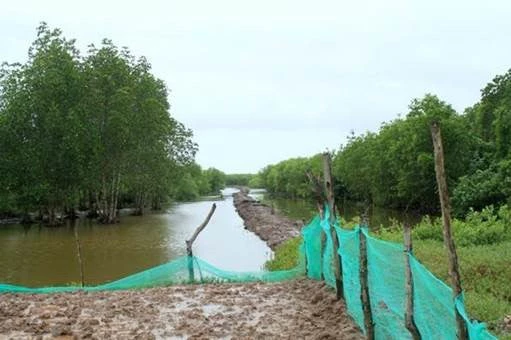Also available in: Español | Français | العربية

More than two decades ago, the world agreed on the need to confront climate change.
The U.N. Framework Convention on Climate Change (UNFCCC) emerged in 1992, spawning a variety of negotiating forums with the goal of preventing catastrophic impacts from planetary warming caused mostly by polluting societies.
It's easy to overlook the progress that has occurred since, because we still have so far to go. Droughts, flooding and cyclones that already seem to be the norm are just the latest warnings of what is coming, and preventing much worse requires immediate and aggressive action to drastically reduce greenhouse-gas emissions.
Embedded in implementation of each of the 17 SDGs are two simple and startling realities:
- No scenario exists in which we would meet the SDGs by the 2030 deadline if our emissions trajectory continues as it is today.
- Nor does any scenario exist in which we meet the SDGs without investing in greater resilience to climate change.
The work generated by the UNFCCC process provides the answers we need. The science is clear and the economics is compelling. Now as we look ahead to December'sclimate-change conference in Paris, we all need moral and political will to take the necessary steps.
From the World Bank Group's perspective, these steps require building climate-resilient societies through low-carbon growth, with the right financing in place. The scale of work needed to meet the challenge means transforming our economies.
That means finance, and lots of it. The financing required for an orderly transition to a growing, low-carbon, and resilient economy is counted in the trillions, not billions, to ensure that countries, cities and communities can cope with the impacts of climate change.
The good news is that climate action does not require economic sacrifice. Smart policy choices can deliver economic, health and climate benefits, as shown by our Adding Up the Benefits report.
Multilateral banks, like the World Bank Group have a clear role to play. As a report released in June showed in the last year, we delivered more than $28 billion in financing for climate action and mobilized more from others sources. However, that is just a fraction of what is needed.
A key and necessary, but insufficient step, is putting a price on carbon -- the primary cause of climate change -- to make fossil-fuel power and resulting excessive emissions more expensive. At least 40 countries and more than 20 cities, states and provinces now use, or plan to use, a price on carbon. This helps create the economic incentive to shift from fossil-fuel dependency and choose low-carbon development options.
Leveraging funding from the private sector and the trillions of dollars it manages is also essential to meeting the goals. As an example of the new thinking required, the World Bank has helped pioneer green bonds, an innovative way for private investors to support climate action.
Our approach is wide-ranging. We are supporting the energy transformation that is already underway, with work that helps countries shift to solar, wind, and other forms of renewable energy. We are also helping farmers adopt new technologies, new ways to feed their livestock and new crop varieties, as they adapt to a changing climate.
We've seen this approach work in Vietnam, where a project to change farming practices for rice cut water usage by about 20 percent and lowered greenhouse-gas emissions. Success has led to expansion of the effort in the Mekong Delta. Now, over five years, the project is expected to help reduce about 2.5 million tons of CO2 equivalent.
Seemingly straightforward changes can make a world of difference. In Bangladesh, for instance, a Bank project is building more than 500 new steel shelters for people on the frontline of climate change. The shelters serve as primary schools while also offering safe havens when disaster strikes.
The SDGs will be realized in an era profoundly shaped by climate change. We know we have to move toward zero carbon by the end of the century. Let's not put off till tomorrow what we need to do today.
Rachel Kyte
World Bank Group Vice President & Special Envoy for Climate Change
www.worldbank.org/climate
Twitter: @rkyte365
This post originally appeared in the Huffington Post.


Join the Conversation